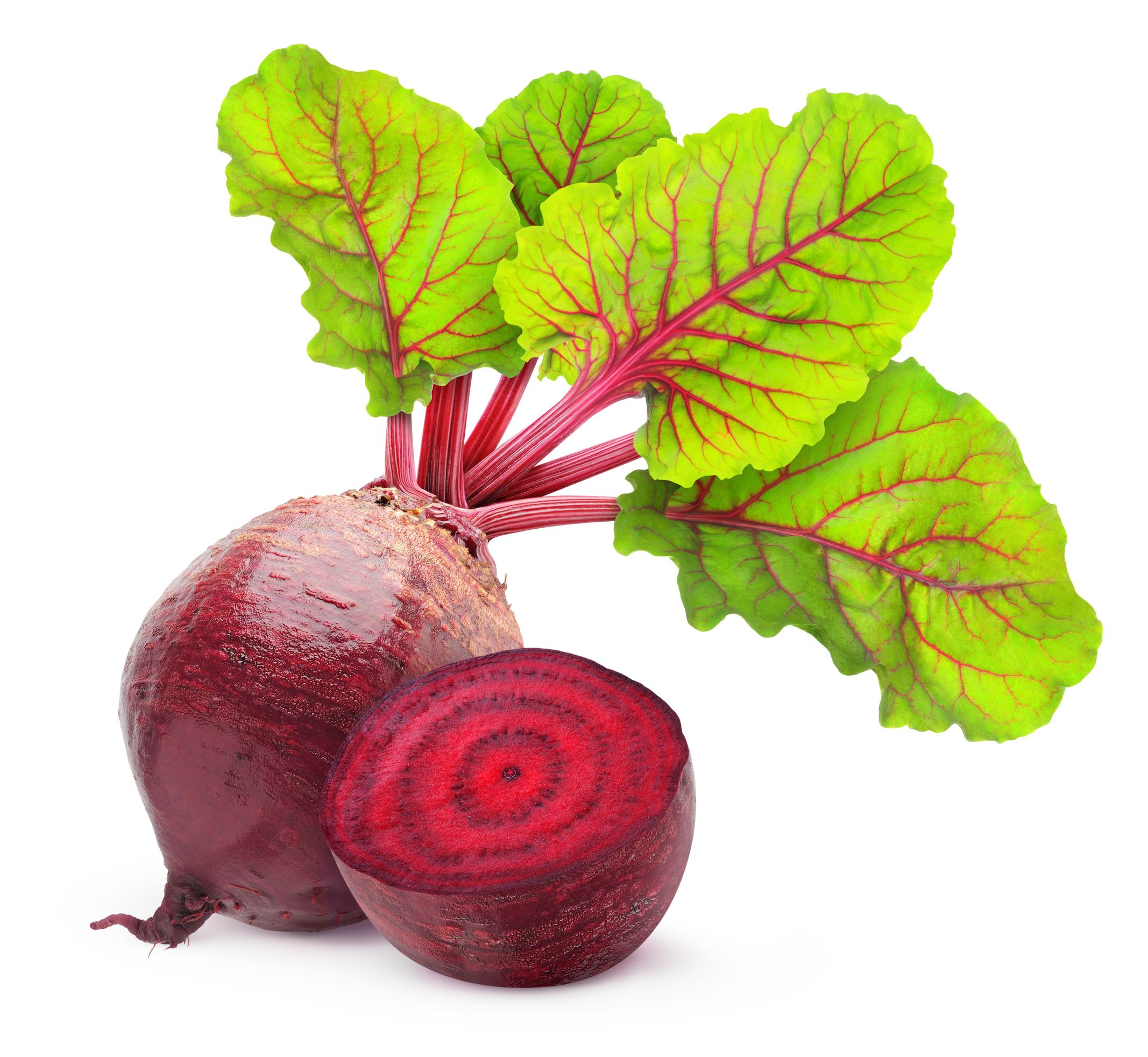The color is intriguing. The taste is unique. Versatility and health benefits place the beet at the top of the top of superfoods. Served hot or cold, as a liquid or solid, beets may prevent numerous chronic conditions, increase energy, and boost mental health.
Although beets can be golden, white, striped, and green-leafed,consumers are most familiar with the deep red-purple (think beet-red!) root vegetable found in gardens throughout the world – and throughout history. Often referred to as a prehistoric food dating back 5,000 years, thank the ancient Romans for recognizing the beet as a powerful addition to the dining table.In more contemporary times, the U.S. Apollo 18 astronauts served borscht, a Russian beet soup, to the Soviet Soyuz 19 astronauts.
 Bursting with fiber and nutrients, beets contain generous amounts of vitamin C, the B vitamin folate, potassium, and manganese.The beet is a superfood, which helps to reduce birth defect risk, promotes healthy nerves and muscles, and is good for the liver, kidneys, pancreas and bones. Rich in betaine, a nutrient first detected in sugar beets and pronounced accordingly, beets assist in fighting inflammation, minimizing risk to the vascular system and internal organs, increases energy and may prevent chronic disorders such as asthma or diabetes.
Bursting with fiber and nutrients, beets contain generous amounts of vitamin C, the B vitamin folate, potassium, and manganese.The beet is a superfood, which helps to reduce birth defect risk, promotes healthy nerves and muscles, and is good for the liver, kidneys, pancreas and bones. Rich in betaine, a nutrient first detected in sugar beets and pronounced accordingly, beets assist in fighting inflammation, minimizing risk to the vascular system and internal organs, increases energy and may prevent chronic disorders such as asthma or diabetes.
The colorful appeal of the beetroot is not just for catching the eye. In an extract form, the natural plant chemicals, which contribute to their deep red-purple color, are being studied as a method for treating prostate, breast and pancreatic cancers. And the red and yellow, or betalin pigment, contributes to the body’s detoxification process, which assists in liver and blood purification.
Looking to spice up your life? Have a beet salad. The pre-Christianity Romans enjoyed beets as an aphrodisiac and science confirms it. The boron found in beets is connected to human sex hormone production.That could also explain why beets are especially beneficial during pregnancy, with high amounts of vitamin B and iron assisting in the development of new growth cells and iron replacement.
Don’t Forget the Juice and the Greens
In a rush? Need to power up quickly for an intense workout? Grab a glass of chilled beet juice mixed with a little apple or orange juice for a sweet/tangy flavor and you are ready to go. According to several studies, individuals who consumed beet juice prior to exercise, could increase their exercise time by as much as 16 percent. Research indicates that nitrates in beets are changed into nitric oxide, which not only enhances exercise tolerance but may also assist in lowering blood pressure.
Beet greens are good for you, too. The iron-rich greens also contain large amounts of nutrients and vitamins and may be more nutritionally powerful than the beetroot. Research shows that beet greens have the potential to boost bone density, slow the rate of Alzheimer’s disease and strengthen the immune system. Try using beet greens in the same ways you use spinach or other leafy greens.
Now that you are ready for a healthy serving of beets or beet juice, keep in mind that beets are high in carbohydrate and sugar. Enjoy the greens in unlimited quantities, but limit beets and their juice to three or four servings a week.



